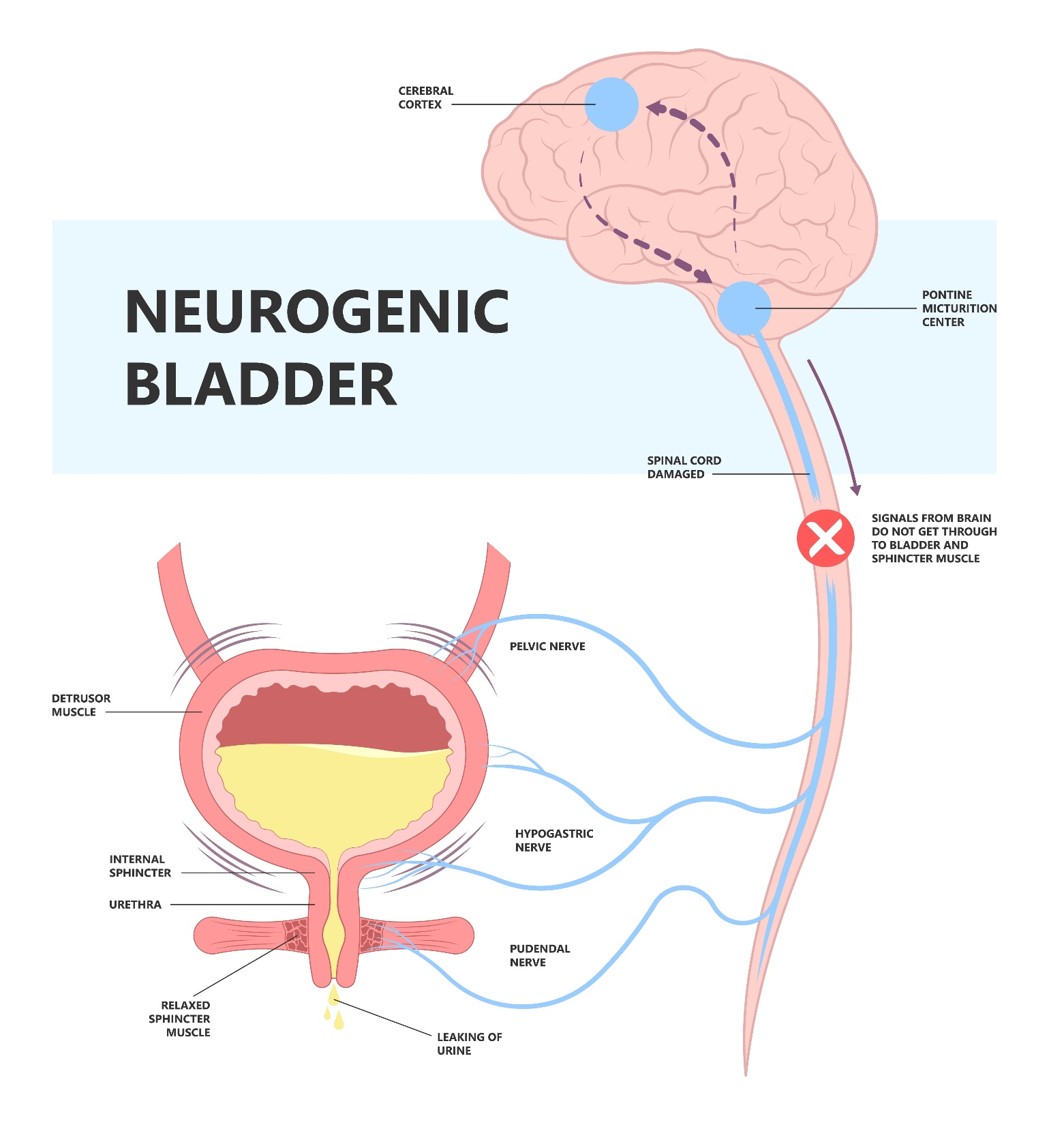
Neurogenic Bladder
The urinary system's muscles and nerves cooperate to hold and release urine when it's needed. Between the bladder the spinal cord and the brain nerves transmit messages. The signals instruct the bladder's muscles to contract or relax. The malfunctioning of these nerves results in a neurogenic bladder.
Overview
Neurogenic bladder dysfunction is a nervous system that prevents you from having normal bladder control. It occurs when damage occurs to the nerves that regulate your bladder frequently as a result of disease or trauma. Neurogenic bladder dysfunction is classified into two types. One form of neurogenic bladder dysfunction that leaves you with little to no control over your urination is overactive bladder.
You might also have an unexpected or frequent urge to urinate as a result of it. (It is also known as hyper-reflexive or spastic bladder.) Underactive bladder occurs when your bladder muscles lose the ability to hold urine. You can no longer feel when your bladder is full or empty completely so it overfills and urine leaks. (This particular kind of neurogenic bladder. Is also called flaccid or hypotonic bladder)
Causes
Neurogenic bladders can be caused by a variety of factors, including.
Cerebral conditions like accidents or "strokes" Intracerebral hemorrhages, Brain tumors
Spinal Cord Conditions like Spinal Cord Injury Spina bifida Transverse myelitis. Spinal cord tumors
Peripheral nerve problems.
Pelvic conditions like pelvic surgery Pelvic radiation peripheral neuropathy Prolapsed spinal disc.
General conditions that can affect nerve function on multiple levels Multiple sclerosis Diabetes Parkinson's disease Vitamin B12 deficiency.
Symptoms
The symptoms of neurogenic bladder dysfunction are as follows:
Feeling an urgent need to urinate.
Having a weak urine flow or dribbling urine
Frequent urination Inability or difficulty passing urine
Unable to control your urination.
Painful or unpleasant urination
Ayurvedic View
Here aggravated vata dosha enters mutra vaha srotas (urinary system) and the person loses the ability to control or finds difficulty in control of the physiological functioning of the bladder. Ayurveda way of approach is to correct the root cause of this disease, reduce the symptoms, and bring dosha back to prakruta awatha (normal state) by ayurvedic panchakarma treatment, local treatment done to strengthen the nerves, and muscles along with internal medication after which the patient can lead a healthy life.
Ayurvedic Treatments
Abhyangam Bashpa Swedanam Lepanam Virechnam Uttravasti Vasti Pinda swedanam
Naturopathy Treatments
Hip bath Packs Steam baths Enema Mud therapy Reflexology Acupuncture Diet therapy Clinical yoga Mind sound resonance technique Pranayama Exercise therapy.
Neurogenic Bladder
Treatment for
DISCLAIMER: Listed treatment details are only for information purposes. Treatments and duration may vary depending on numerous factors. Treatments for your condition may not be limited to this list.






















